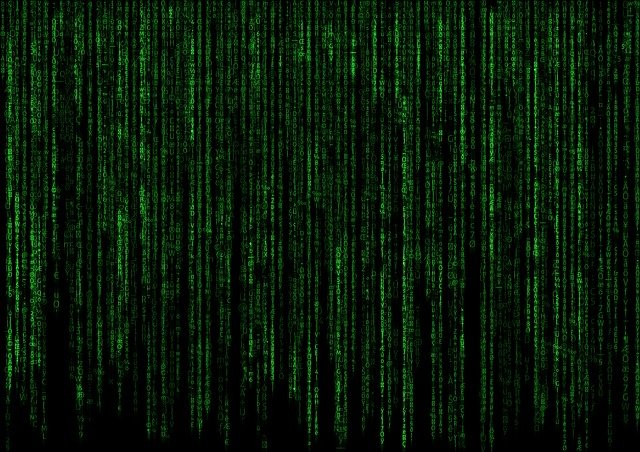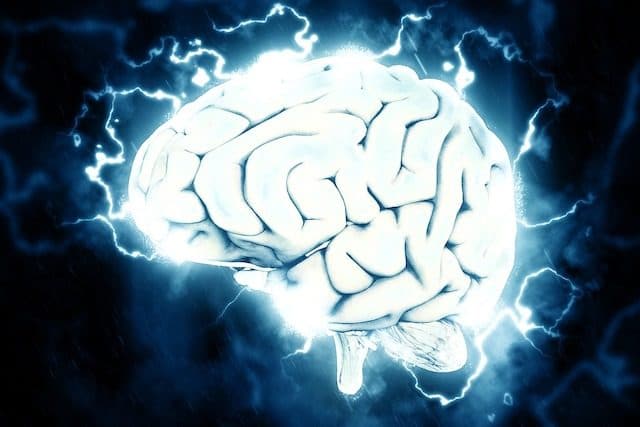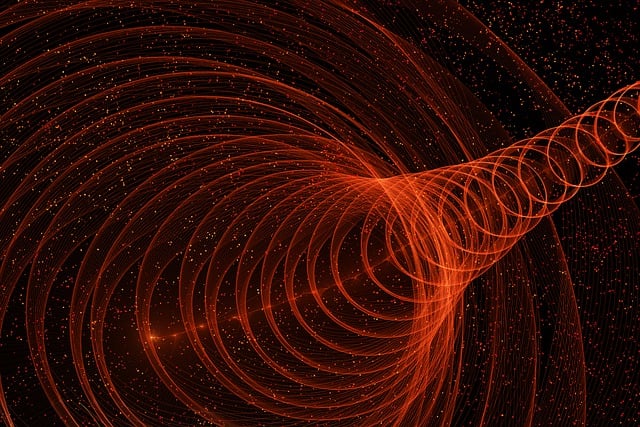How did you start your day today? Did your alarm go off? Did you sleep in a little bit, or were you up right away? Do you work out in the morning? Take a shower? Have breakfast? Maybe you skip all that and head right to work. There are probably thousands of ways you could have started your day today. Millions even. Could you prove to someone else that any of them actually happened if you had to? Could you prove that you’re even real? Or that anyone else is?
For some of us, this is an absurd question. Of course you’re real. Of course the world is real. And, functionally, that might be as deep into this question as you ever need to get. But how do you know? How do you know anything is real besides you? Let’s get a little deeper and see what we can find out.
What is Real?

Most of us take for granted that what we see, feel, hear, taste, and smell daily is reality. Practically, you have to live that way. Society doesn’t function unless we all agree that we’re actually here doing things. But just because we all tacitly agree to a thing doesn’t make it so.
Have you ever had a dream that seemed like it was reality? Have you ever seen something from the corner of your eye that wasn’t really there? The fact is, there are many simple ways you can trick nearly all of your senses into believing something that isn’t true. Magicians pull this off all the time. Illusions make you believe one thing when another is true. But few people think that day to day, they experience similar illusions.
People who have lost limbs can still feel them thanks to phantom limb syndrome. Numerous psychological conditions and medications can cause hallucinations, both visual and auditory, that can be indistinguishable from reality. A condition like synesthesia can cause one kind of sensory input to be perceived by a completely different sense, allowing people to see shapes when they are listening to music, or maybe smell something just by seeing it. In other words, there are a myriad of ways that the world you experience can be altered to what other people would not think is real at all. But to you, it would seem very real.
Psychiatrists have noted that people are more than willing to believe their own subjective reality above the objective reality of everyone around them, including independent evidence. That’s the power of your own consciousness. If you believe something is true, why would you ever agree with an outside person that it’s not true?
Imagine you go outside wearing a blue shirt. Someone stops you to compliment your gold shirt. You think they’re crazy. You’re not wearing a gold shirt. You’re wearing a blue shirt. They disagree. They’re right there looking at you, they can clearly see it’s a gold shirt. This sounds absurd, and it was a massively popular debate on the internet when an image of a dress went viral which some people saw as white and gold, and others saw as blue and black. The fact is, perception is reality for most people. And you cannot doubt your own perception, because to you it’s obvious. In reality, that was a blue and black dress. But people who assumed it was a picture taken in shadow over-corrected in their minds and concluded it was white and gold.
There are theories out there about how real or unreal the world is. One of the most interesting is the simulation hypothesis.
The Simulation Hypothesis

If someone were to ask you right now what you think the odds are that the world is a simulation, what kind of numbers would you be giving? According to some experts we’re sitting at about a 50/50 chance right now. And if our technology ever develops to the point where we can create artificial consciousness, those odds will drastically change in favor of us being make-believe. How comfortable does that make you feel? Your entire existence is a coin flip.
Neil DeGrasse Tyson has said it’s hard to argue against the possibility of this being true. To support the idea, he asks you to consider computing power today and how it has evolved over time. How you can make a vast world like Minecraft or the Sims on a computer today. Or a seemingly intelligent program like Large Language Models and ChatGPT. Now, imagine what a computer will be like in 50 years. Or 100 years. Imagine how powerful those computers are and how realistic their worlds will be. Imagine, then, that you can program a virtual person and make them think they are real. Now imagine you’re that virtual person. If this was all a program how would you ever know differently?
Even more mind-bending, he suggests that one of those simulated people might invent the computer in their simulated world. And then as their technology increases, they might create their own simulated world in the simulation. This could go on and on with thousands, millions, infinite simulated worlds made inside of new simulations. And he said, if you consider that, what are the odds that you are in the one original, real real world? Statistically, those are very slim odds. Statistically, all of us are probably just pretend. We are programs playing out the simulation the way some algorithm has dictated. We only have free will because we think we do. Because we’re not programmed to think otherwise.
One of the most harrowing parts of the simulation theory is that, given our current level of knowledge and technology, we have no way to prove or disprove the theory.
I Think Therefore I Am

While the simulation theory is fairly recent, only dating back a couple of decades, questioning reality is far older. Philosopher Rene Descartes is famous for the quote “I think therefore I am.” That statement was an affirmation of reality. But, specifically, it was an affirmation of Descartes’ reality. Meaning that he is confident he exists. You cannot technically be confident that Descartes exists. You can’t be confident that anyone exists outside of yourself. Because the only thing any of us truly know is what’s in our own head. As we saw with altered perception, anything that comes from outside of ourselves is potentially distorted or deceptive.
Descartes was trying to get to the core of how we know anything and he founded this on the idea of doubt. That everything outside of yourself must be doubted except the thing doing the doubting. Something has to exist to doubt everything else, and that was the I in “I think therefore I am.”
It’s worth noting that even your internal perception can’t be trusted. Mental illness or chemical influence can easily make you think you are Napoleon Bonaparte and not who you truly are. Or maybe you are Napoleon, and the rest of us are suffering from the wrong perception. So “I think therefore I am” still applies to you, but who you are might still be up for debate.
In the end, Descartes’ conclusions were essentially that it makes more sense to believe everything in the world is real because it’s just easier that way, more or less. But other philosophers have delved more deeply into the idea. The problem is, scientifically, this is all very hard to approach. As a philosophical exercise, no problem. But in terms of hard science proving reality, if you accept that the science in this reality would therefore be subject to the rules of false reality, makes it kind of hard.
Scientific Attempts to Prove That Reality Is Real

Now, if you’re not in the middle of an existential crisis, you must be wondering how we know the world is real. You can’t just accept that it’s not knowable, can you? There has to be more to it than that. And, rest assured, many people have put their minds to work to find a way to prove that you are real, your cat is real, Boston is real.
There have been experiments conducted to prove that reality is real. That’s a weird sentence to wrap your head around, but that’s the core of this. Basically, if you can’t trust your perceptions, then how do you determine something exists outside of yourself? You need to do something that doesn’t rely on your senses to come to a conclusion. Taking that to its logical conclusion would mean, to most of us, that this is an impossible ask.
In one experiment, researchers tested quantum mechanical theories that suggest reality doesn’t really exist until it’s observed. One of the most popular examples of this would be Schrodinger’s cat. You don’t know if the cat is alive or dead until you look in the box. But there are other examples of this in physics as well, notably how you can’t tell where a particular particle is until you actually see it. In the experiment, the team essentially proved reality is the same no matter who is observing, thus making it objective or “real.”
Another experiment conducted by Chinese researchers delved into quantum entanglement, showing that reality actually doesn’t exist until you go looking for it. In quantum mechanics, particles only exist in a certain state when you observe them. Until they are observed they are essentially existing in multiple states.
Using quantum entanglement to observe two entangled particles, that is two particles that are linked together over what could be a great distance, the researchers determined that these observable qualities don’t exist until you actually observe them, which is certainly a little esoteric if nothing else. But the conclusion to draw from this is that reality is there when we look at it. That’s certainly a better conclusion than reality not existing at all.
Wigner’s Friend is another unusual experiment dealing with the idea of reality. In this experiment, Wigner’s friend is a scientist in a lab. He is observing a particle and has seen the state, the thing we have already determined can’t be known until you observe it. But he has observed it, so he knows. He observed this particle in the state of spin-up.
Wigner is outside the lab. Wigner does not know what happened during the experiment. But he can, mathematically, support the idea that the particle is in that indefinite state where it could be spin up or spin down. And, scientifically he would be correct even though his friend is also correct in knowing that spin-up is the true state.
In this experiment, both men have a different view of reality and both are correct at the same time based on science as we understand it. The conclusion? Maybe reality is subjective, or maybe it’s objective and we’re missing some pieces of the puzzle to determine how to understand it all.
One thing worth remembering here, especially if you’re consumed by a sense of dread that perhaps you are a simulated person in a simulated world, is that reality is still happening. You are very likely living a long, full life. You will do thousands of things, and meet thousands of people. You will eat interesting foods, you will fall in love. You might travel. You will have good days and you will have bad days. Even if none of it was real in the sense that you’re thinking of that word, would it matter? At the end of the day if you live your whole life, and this is just a simulation, is it not as real as it ever needs to be for you? Just something to think about.